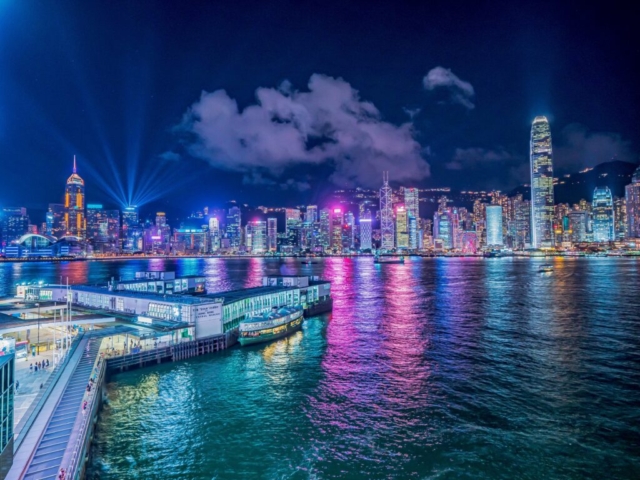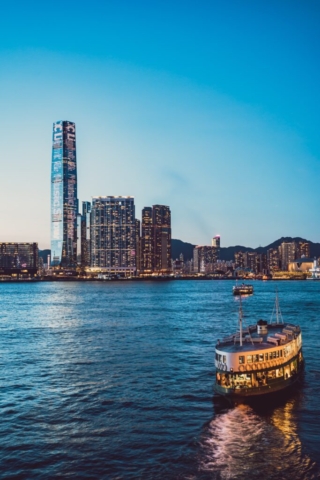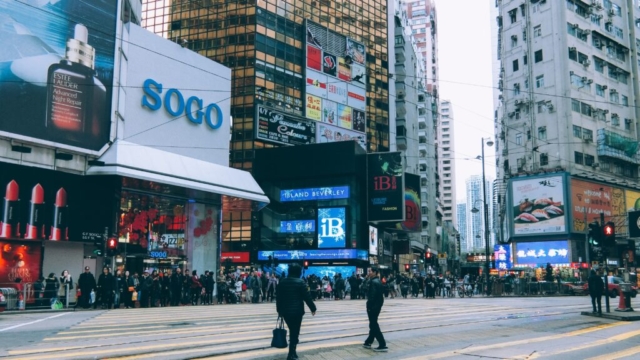18-10-23
What matters most is not ‘what’ you are, but ‘who’ you want to be and ‘where’ you want to live?
How would you decide where to settle down and what will be your home?
It is suggested that there are numerous factors such as cost of living, job availability, desirability and happiness, crime, quality of environment and standard of health care. One important factor is often omitted from the list: destiny.
Entitlements to stay in a place come from various legal sources. The main difference between a visa and a passport is that a visa is just an endorsement that grants the holder official permission to enter and stay in a place for a specified period of time. The most common visa types are tourist, student, work and transit visas. A passport is a travel document that can prove one’s citizenship or national status.
In Hong Kong, the concept of so-called ‘Hongkongers香港人’ is complicated and may be one of the following:
- he may be merely the holder of an ‘employment visa’ to work and live here;
- he may be granted an ‘unconditional stay’ status to live here as a citizen (he does not have to apply for renewal of visa from time to time but can freely work and stay here as a resident. He however cannot enjoy the full rights as a ‘permanent resident’ such as the right to vote in political elections);
- he may be a ‘permanent resident’ who has the permanent right of abode in Hong Kong and enjoys the rights attached to such abode such as housing and social welfare arrangements; and
- a permanent resident who may or may not be entitled to a Hong Kong passport. One is eligible to apply for a passport when, for example, he is a Chinese citizen. Also, China does not recognise dual nationality (雙重國籍).
The notion of ‘Hongkonger’ is further complicated by the concept of ‘domicile’ (居籍) when we talk about certain civil matters at law. For example, a man holds a Canadian passport but he had lived in Japan for 40 years, before he became a permanent resident of Hong Kong. In that case, is his place of domicile Canada, Japan or Hong Kong? After the man dies, his estate will be governed by the law of his ‘domicile’. But, should his assets be distributed according to Canadian, Japanese or Hong Kong law? Domicile can affect matters of marriage, divorce and inheritance of a deceased person’s property. The Hong Kong courts do have to refer to the law of domicile of a person in such circumstances. ‘Domicile’ is a legal notion about the place or country that a person treats as his permanent home and has a substantial connection with.
We often let the place where we live affect us. We should be entitled to change to a place where we want to live. On the contrary, some just care about what they want; and forget they also have a concurrent duty to learn to love the place where they are staying and develop a sense of belonging. Aristotle said, “Knowing yourself is the beginning of all wisdom.” Who are you?
During the social unrest in 2019, we could see some people love Hong Kong too much, some did not love Hong Kong and some loved Hong Kong incorrectly.
It is often easy, if not a cliché, to say that ‘Hongkongers’ must unite and love each other. The real situation is that unity and love are logically a series of long, natural and spontaneous changes on the part of the people living here. Without a tolerant and respectful society, slogan by the authority cannot be effective.
I talked to friends around. Some said, “I was born in Hong Kong. I am 100% made by and for Hong Kong! I am ‘Hong Kong-Hong Kong’!” Some replied, “I came from the Mainland a few years ago. My emotional attachment is still with Chinese Mainland. Here is just my transient house!” Some smiled, “The earth is but one country. Mankind is its citizens. I don’t belong to any place or country. I am a global citizen!” Some pondered, “We are Chinese but emigrated from Southeast Asia. So, we feel we belong to 2 countries!” Some were serious and told me, “Hong Kong is merely a city. We love a big country but a city is too small for us to develop any loyalty!” Some hushed me, “I got 2 passports and have dual nationality. It is really hard for me to have a sense of belonging for Hong Kong only!” Another friend finally confessed, “I work here chiefly for money. I will go back to Korea. The sentimental fondness for Hong Kong will make me very sad when I have to return home one day. So, I want nothing to do with Hong Kong apart from work! I wish to be a truly Asian!”
In the commercial world, ‘loyalty programs’, sponsored by retailers, offer rewards, discounts, and other incentives as a way to attract and retain customers, and ‘keep them loyal’. Some people here nowadays want our government to make them stay by offering more attractions. Their loyalty will depend on the degree of benefits like social welfare that Hong Kong could put forward to them. These realistic folks do not like government to tell them what to do; and they just care what the government can offer.
The politician, Neil Kinnock, once wrote, “Loyalty is a fine quality, but in excess it fills political graveyards.” Bainbridge Colby, a lawyer, said, “An intelligent and conscientious opposition is a part of loyalty to country.” Despite all these critical views, I prefer to think positively that loyalty and love are still a very much useful force creating our sense of unity and harmony in any life. Despite the complicated backgrounds of the ‘Hongkongers’ in our tiny city, I prefer to also think romantically that responsible residents here do have a moral obligation, and it is their honour too, to love Hong Kong that they are living in; and tolerate each other in a civilized manner. ‘LGBTQ’ is the first step for us to learn tolerance.
This article can also be found at the following sites:












